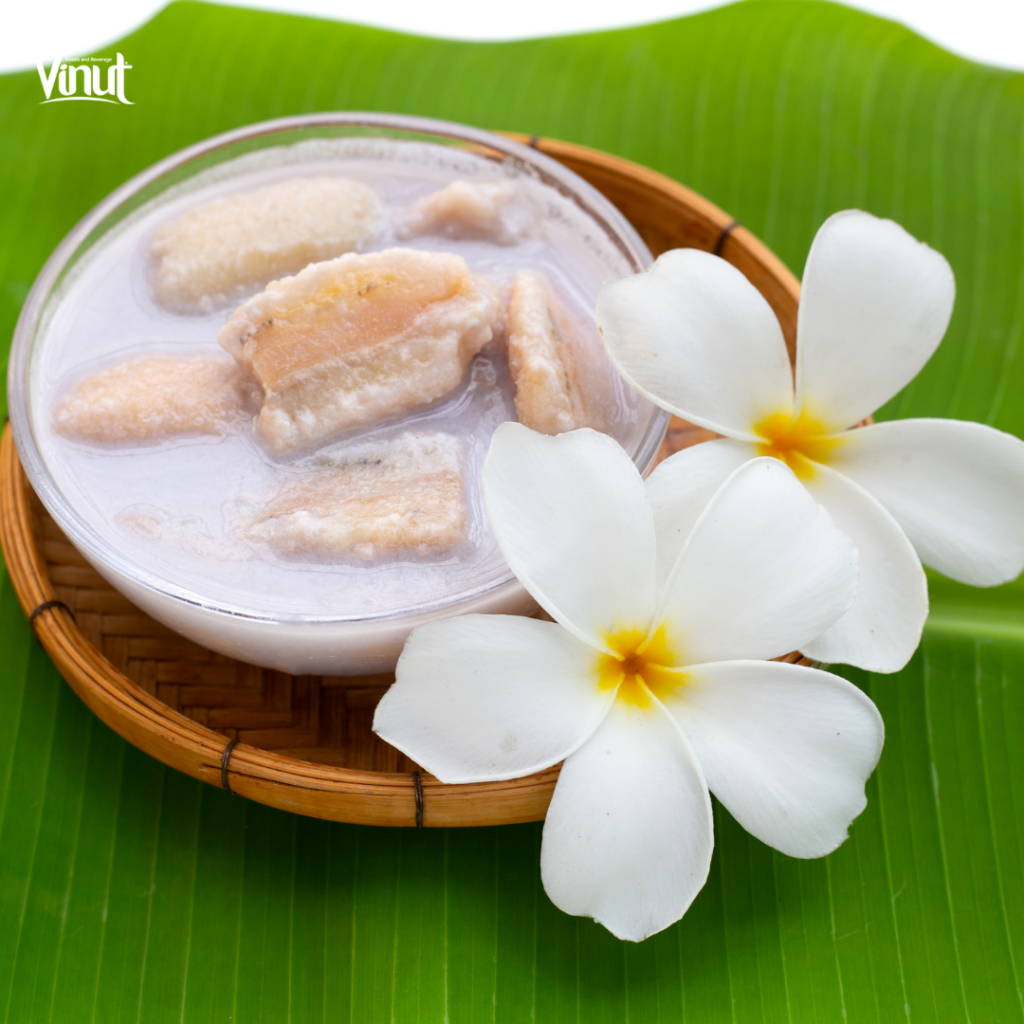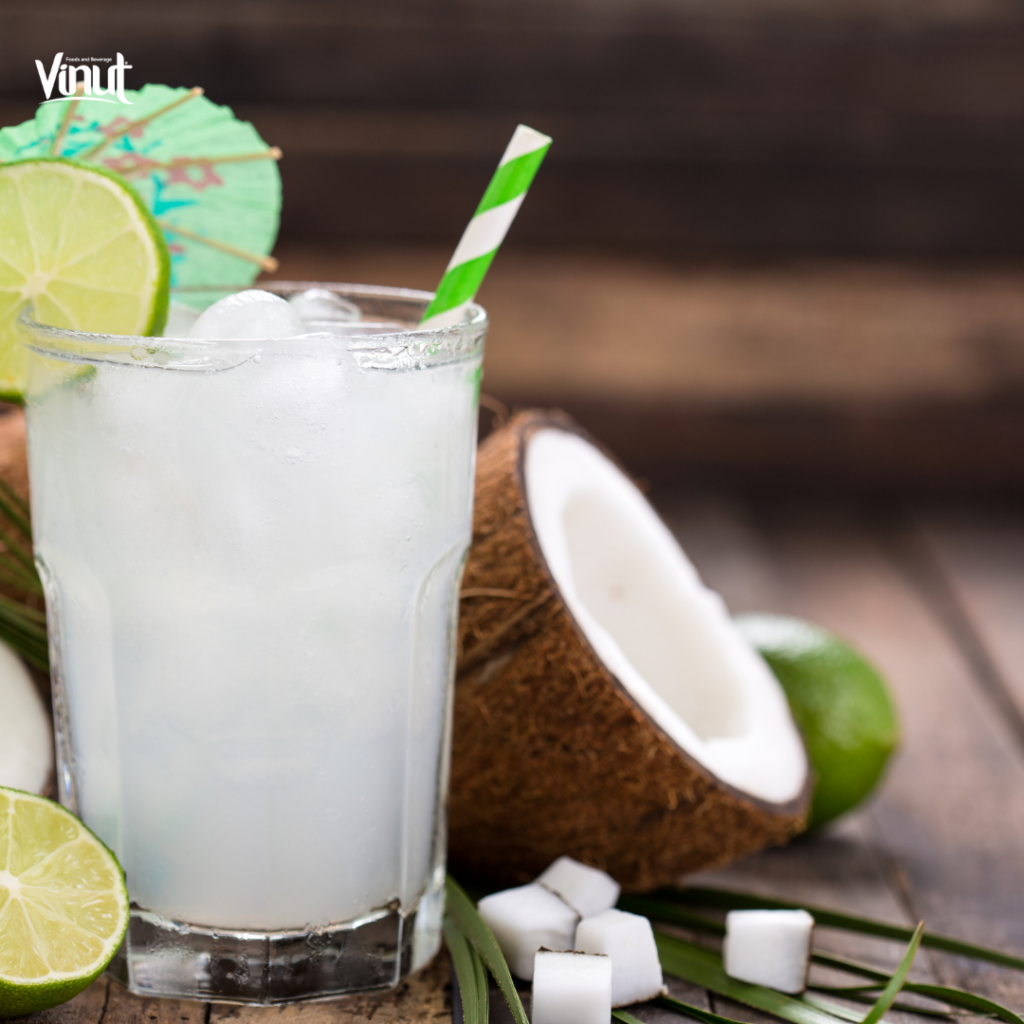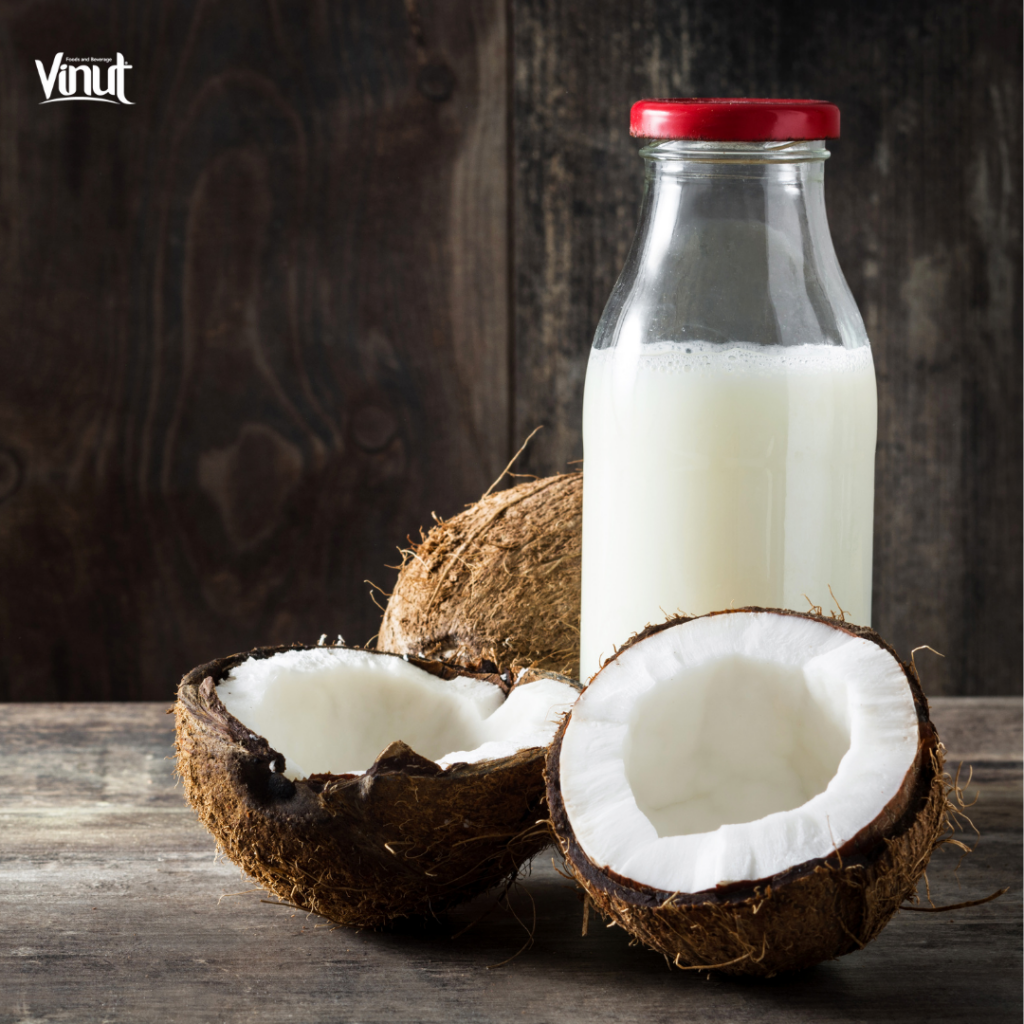
News
What’s in Coconut Milk? Nutritional Facts

Coconut milk, a creamy and delicious liquid extracted from the grated pulp of mature coconuts, has become a popular ingredient in various cuisines worldwide. Its rich texture and unique flavor make it a favorite in both savory and sweet dishes. Beyond its culinary uses, coconut milk is also prized for its impressive nutritional profile. In this article, Cojo Cojo ’ll delve into the nutritional facts of coconut milk, exploring its health benefits, potential drawbacks, and how it can fit into a balanced diet.

Table of Contents
1. Introduction to Coconut Milk
Coconut milk is different from coconut water, which is the clear liquid found inside young, green coconuts. Coconut milk is made by grating the white flesh of mature coconuts and mixing it with water, then straining the mixture to produce a thick, creamy liquid. This liquid is a staple in many tropical cuisines and is commonly used in soups, curries, desserts, and beverages.
Types of Coconut Milk
There are two main types of coconut milk:
- Thick Coconut Milk: This is the first pressing of the grated coconut, resulting in a rich, creamy milk with a high-fat content.
- Thin Coconut Milk: This is made by soaking the grated coconut again in water and straining it a second time, producing a thinner, more diluted milk with lower fat content.
2. Macronutrients in Coconut Milk
Coconut milk is known for its unique macronutrient profile, which includes fats, proteins, and carbohydrates.
Fats
Coconut milk is high in fat, with most of it being saturated fat. A typical 100ml serving of coconut milk contains approximately:
- Total Fat: 21 grams
- Saturated Fat: 18 grams
- Monounsaturated Fat: 1 gram
- Polyunsaturated Fat: 0.2 grams
The saturated fats in coconut milk are primarily medium-chain triglycerides (MCTs), which are metabolized differently from other types of fats. MCTs are known for their potential health benefits, including boosting metabolism and providing a quick source of energy.
Proteins
Coconut milk contains a small amount of protein. A 100ml serving typically provides around:
- Protein: 2 grams
While not a significant source of protein, coconut milk can contribute to your daily intake, especially when combined with other protein-rich foods.
Carbohydrates
Coconut milk has a relatively low carbohydrate content. A 100ml serving contains:
- Total Carbohydrates: 6 grams
- Sugars: 3 grams
- Fiber: 2 grams
The carbohydrates in coconut milk are mainly in the form of natural sugars and dietary fiber, contributing to its slightly sweet taste and smooth texture.

3. Micronutrients in Coconut Milk
Coconut milk is also a good source of several essential vitamins and minerals.
Vitamins
- Vitamin C: Coconut milk contains small amounts of vitamin C, which is important for immune function and skin health.
- Vitamin E: Known for its antioxidant properties, vitamin E in coconut milk helps protect the body’s cells from oxidative damage.
- B Vitamins: Coconut milk provides several B vitamins, including B1 (thiamine), B3 (niacin), B5 (pantothenic acid), B6 (pyridoxine), and B9 (folate), which are crucial for energy production and overall health.
Minerals
- Iron: Coconut milk is a good source of iron, essential for oxygen transport and energy production.
- Magnesium: This mineral plays a role in over 300 enzymatic reactions in the body, including muscle and nerve function, blood glucose control, and protein synthesis.
- Phosphorus: Important for bone health and energy production, phosphorus is present in moderate amounts in coconut milk.
- Potassium: Coconut milk provides potassium, which helps maintain proper fluid balance and supports muscle and nerve function.
- Zinc: This mineral is vital for immune function, wound healing, and DNA synthesis.

4. Health Benefits of Coconut Milk
Coconut milk offers several potential health benefits due to its nutrient composition.
Heart Health
While coconut milk is high in saturated fat, the MCTs it contains may have a positive effect on heart health. Some studies suggest that MCTs can help raise levels of HDL (good) cholesterol and lower LDL (bad) cholesterol, potentially reducing the risk of heart disease.
Weight Management
The MCTs in coconut milk can also aid in weight management. These fats are quickly metabolized by the liver and used for energy, which can increase feelings of fullness and reduce overall calorie intake.
Immune Support
The vitamins and minerals in coconut milk, such as vitamin C and zinc, contribute to a healthy immune system. Additionally, the lauric acid in coconut milk has antimicrobial properties that can help fight infections.
Digestive Health
Coconut milk contains dietary fiber, which aids in digestion and promotes a healthy gut. The fiber helps regulate bowel movements and can prevent constipation.
Bone Health
Coconut milk is a source of calcium and phosphorus, both of which are crucial for maintaining strong and healthy bones. Regular consumption of coconut milk can contribute to bone density and reduce the risk of osteoporosis.
5. Potential Drawbacks of Coconut Milk
While coconut milk has many benefits, it also has some potential drawbacks to consider.
High Calorie Content
Coconut milk is calorie-dense, with approximately 230 calories per 100ml serving. Consuming it in large quantities can contribute to weight gain if not balanced with physical activity and other dietary considerations.
Allergies
Although rare, some people may have an allergy to coconut. Symptoms can range from mild (itching, hives) to severe (anaphylaxis). If you suspect an allergy, it’s important to avoid coconut products and consult with a healthcare professional.
Digestive Issues
For some individuals, the high fat content in coconut milk can cause digestive issues such as stomach cramps or diarrhea. It’s best to start with small amounts to see how your body reacts.

6. How to Incorporate Coconut Milk into Your Diet
There are many delicious and creative ways to add coconut milk to your diet.
Cooking and Baking
Coconut milk can be used in a variety of recipes, from savory dishes like curries and soups to sweet treats like smoothies and desserts.
- Curries and Soups: Use coconut milk as a base for Thai or Indian curries, adding a rich and creamy texture to the dish.
- Smoothies: Blend coconut milk with fruits and vegetables for a refreshing and nutritious smoothie.
- Desserts: Use coconut milk in place of dairy milk for baking cakes, cookies, and other desserts. It can also be used to make dairy-free ice cream.
Beverages
Coconut milk can be enjoyed on its own as a refreshing drink or used in coffee and tea as a dairy-free alternative.
- Coffee Creamer: Replace traditional creamer with coconut milk for a tropical twist on your morning coffee.
- Iced Tea: Add coconut milk to iced tea for a creamy and flavorful beverage.
7. Coconut Milk in Skincare
Beyond its dietary uses, coconut milk is also beneficial for the skin. It can be used as a natural moisturizer, cleanser, and even as a treatment for sunburns and other skin conditions.
Moisturizer
Coconut milk can be applied directly to the skin to hydrate and soften. Its high-fat content makes it an excellent moisturizer for dry and sensitive skin.
Cleanser
Mix coconut milk with a few drops of essential oil to create a gentle and effective facial cleanser. It can help remove makeup and impurities without stripping the skin of its natural oils.
Sunburn Relief
The cooling and hydrating properties of coconut milk make it a soothing treatment for sunburn. Apply it to the affected area to reduce redness and discomfort.

8. Conclusion
Coconut milk is a versatile and nutritious ingredient that can enhance both your diet and skincare routine. Its rich content of vitamins, minerals, and healthy fats offers numerous health benefits, from supporting heart health and weight management to boosting the immune system and improving digestion. While it’s important to be mindful of its high-calorie content and potential for allergies, incorporating coconut milk into your daily life can be a delicious and beneficial addition.
FAQs
1. Is coconut milk the same as coconut cream?
No, coconut milk and coconut cream are not the same. Coconut cream is thicker and contains more fat, while coconut milk is more diluted and has a lower fat content.
2. Can I use coconut milk if I’m lactose intolerant?
Yes, coconut milk is a great alternative for those who are lactose intolerant, as it is dairy-free and lactose-free.
3. How long does coconut milk last once opened?
Once opened, coconut milk should be stored in the refrigerator and consumed within 5-7 days. It’s best to check the label for specific storage instructions.
4. Can coconut milk be used as a substitute for dairy milk in recipes?
Yes, coconut milk can be used as a substitute for dairy milk in most recipes. However, its unique flavor may alter the taste of the dish slightly.
5. Is canned coconut milk the same as fresh coconut milk?
Canned coconut milk is processed and often contains added preservatives, while fresh coconut milk is made from freshly grated
